
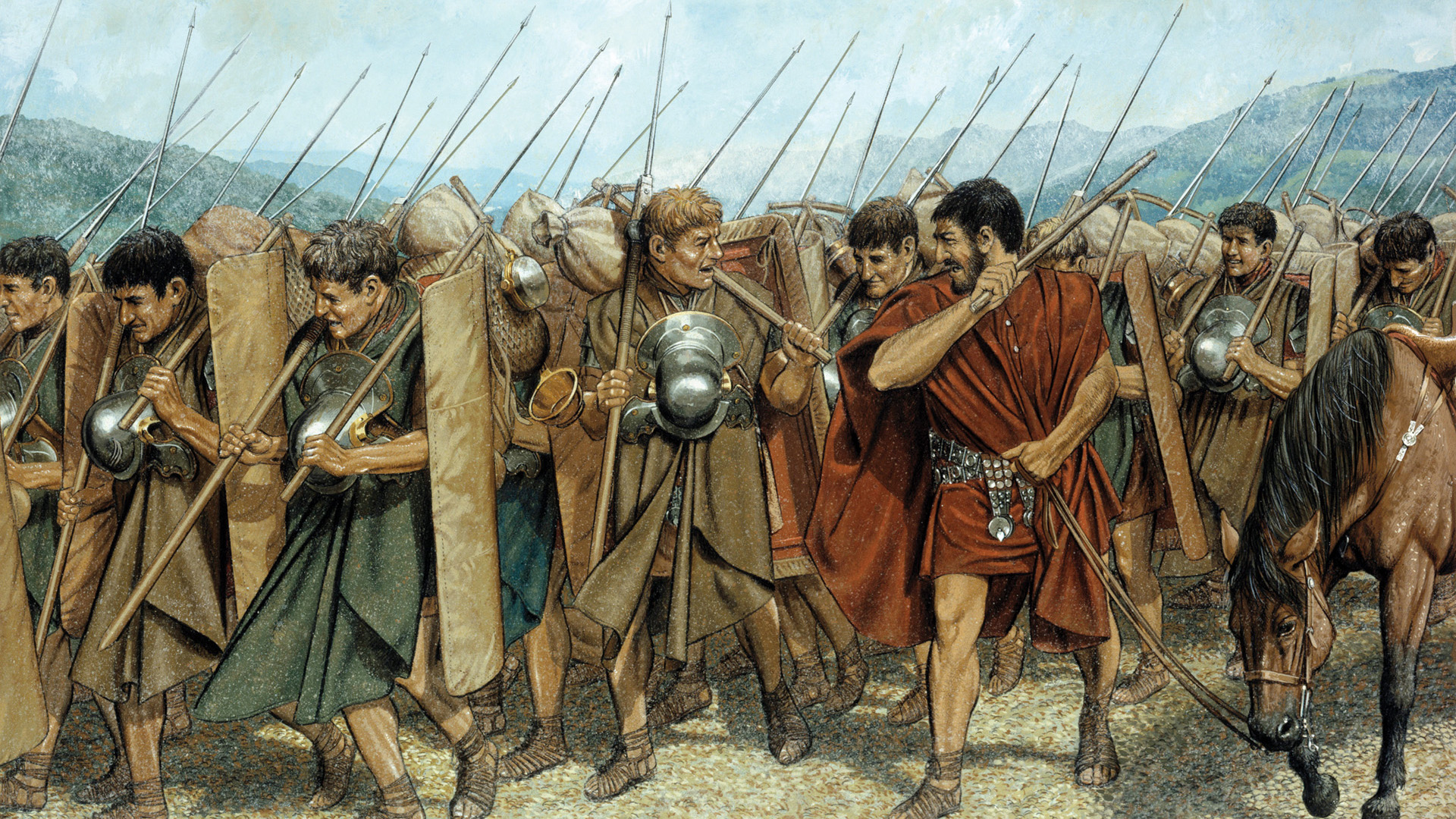


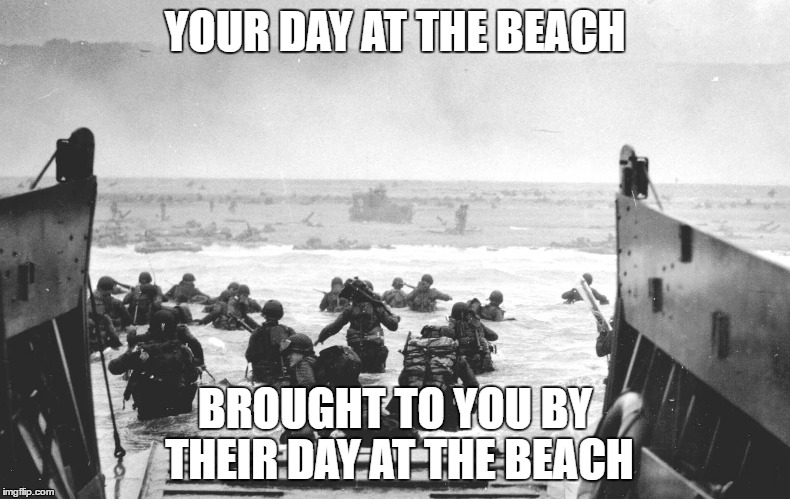
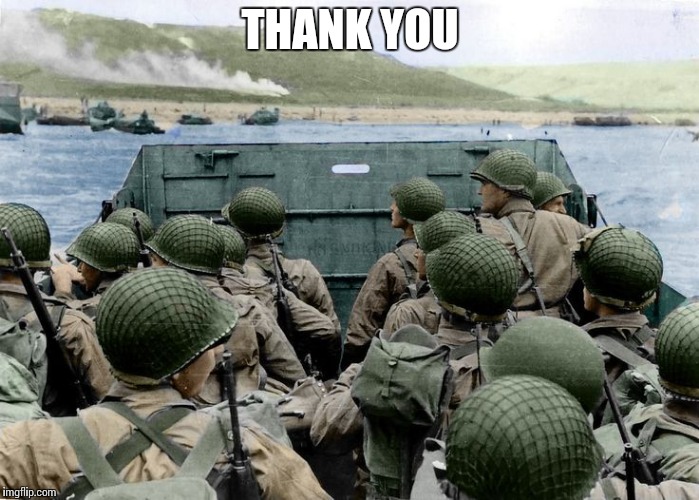
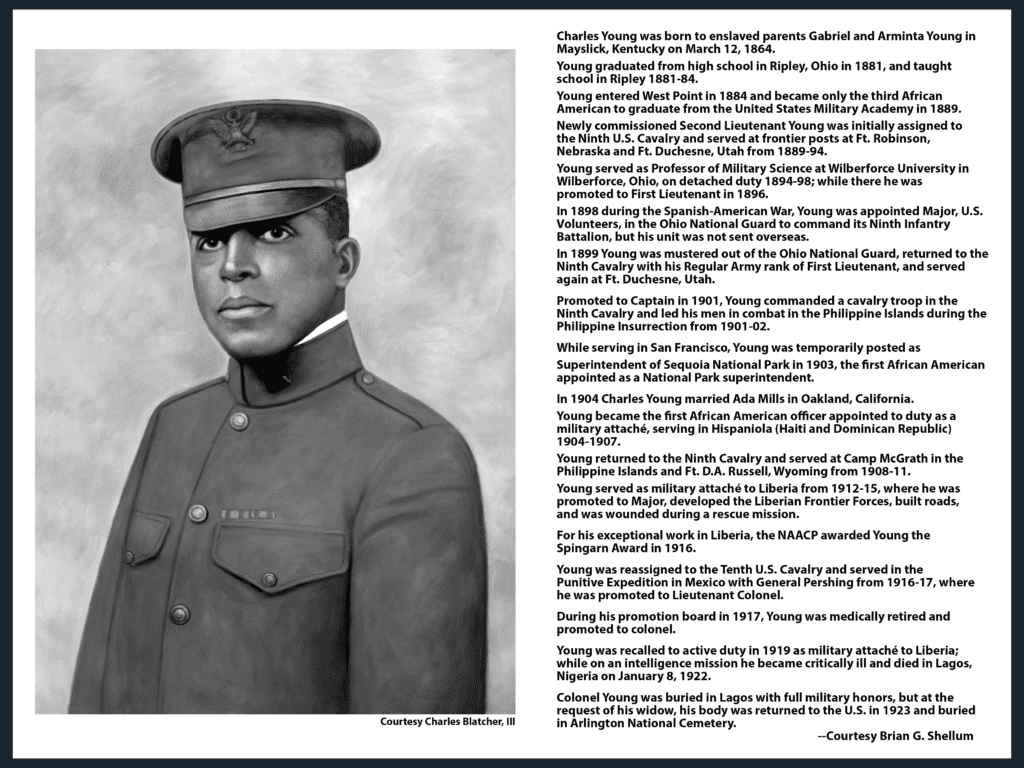

Its a Black Cat PBY Catalina and they are working on those really complex Radial engines. The noise must of been something! Grumpy
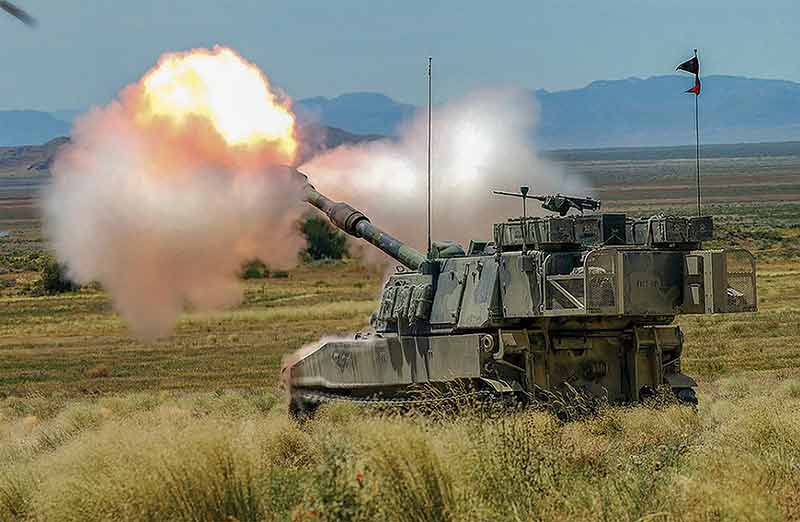 Tube artillery is breathtaking to behold up close.
Tube artillery is breathtaking to behold up close.
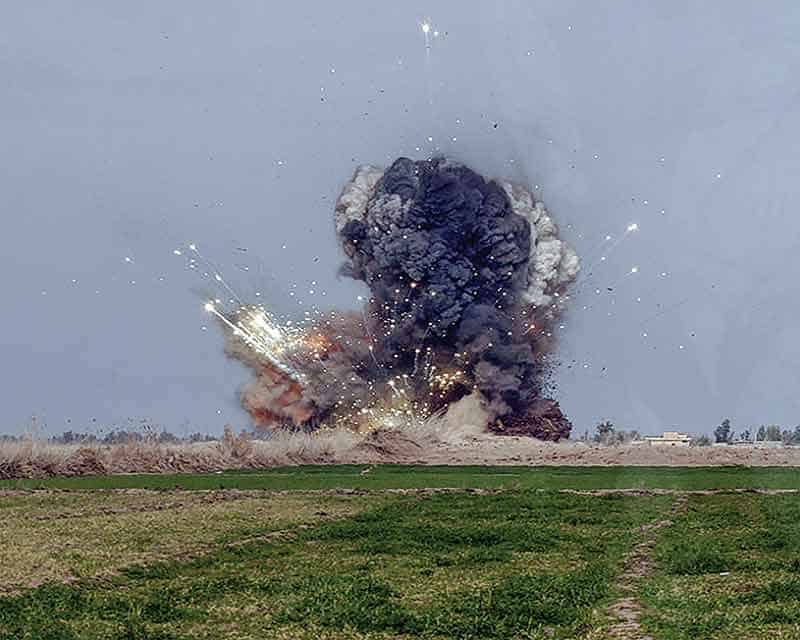 A military CALFEX is like Christmas for gun nerds. The guns are huge,
A military CALFEX is like Christmas for gun nerds. The guns are huge,
the noise is deafening and the spectacle is epic.
It’s called a CALFEX — the mil-speak term for a Combined Arms Live Fire Exercise. Think of it like a machinegun shoot on steroids.
Armor, Artillery, rotary-wing Aviation, Close Air Support and Mechanized Infantry all coordinated to shoot up the range facility at my sprawling military post. We always wrapped it up with a massive B1 or B52 strike. We rehearsed everything on one day and then opened the event to the public the next day. It was a twice-a-year spectacle, and the taxpayers loved it.
I had flown in this thing several times, but never got to watch it. As such, I put another crew on the mission and a Warrant Officer buddy and I resolved to sneak out for the rehearsal and watch the spectacle. The rehearsal shot all the same ordnance as the real deal, so the show would be the same.
The MPs had blocked off all the roads leading to the range to keep idiots like us from doing what we planned on doing. However, as an Army aviator, I was intimately familiar with all the goat trails crossing the range facility. Circumventing the MP roadblocks was not a challenge.
My buddy and I ditched my little pickup truck in some thick woods and progressed on foot. We pressed through the tangled underbrush until we came out on a bulldozer the engineers had used to prep the range for the event. Climbing on top of the earthmover, my pal and I had a ringside seat to some serious military chaos.
The event had an announcer who explained the choreography of the exercise to the spectators. The PA system could literally be heard above an artillery strike, so we could follow the action from our perch atop the dozer despite being unable to see the bleachers. As the CALFEX began in earnest, it became apparent we really had a great vantage point. The artillery was especially spectacular from our perch.
The 105mm, 155mm and Multiple Launch Rocket Systems rent the earth asunder to the delight of my buddy and me. The detonations were close enough for us to feel the shockwaves, and the MLRS seemed to punch holes through the sky. We were young, bulletproof and immortal, and this was as good as it got.
 Helicopters are the only military machines cooler than tanks.
Helicopters are the only military machines cooler than tanks.
Suddenly the announcer declared the next event would be an armored unit in full assault. An M1 tank weighs 130,000 lbs. and could violate most of the nation’s posted speed limits. Second only to helicopters, tanks are just stupid cool. My pal and I anxiously searched downrange trying to pick out the tanks as they sprang from their camouflaged fighting positions.
The M1 is a turbine-powered beast, and it makes a distinctive sort of racket. The noise is a cacophonous harmony of a jet engine combined with the metallic clanking of tank tracks. There really is no other sound quite like it. We heard the distinctive sound all right, but not where we had expected it.
To our horror, we looked back and realized we had inadvertently slipped past the tanks while trying to secure a proper perch. The tanks leapt out of their fighting positions behind us and opened up with their coax guns and cupola-mounted fifties. The bulldozer wasn’t a piece of parked engineering equipment. The bulldozer was a target.
Friends, they say tracers as big as basketballs will come at you. I’d say it’s a profound understatement. We dove off the bulldozer and clambered down between the tracks as machinegun bullets streaked all around us. Flattening ourselves as much as possible, I was praying audibly, hoping the tanks wouldn’t shoot the bulldozer with their cannons.
 An M1 tank shooting at you will make all your other problems pale in comparison.
An M1 tank shooting at you will make all your other problems pale in comparison.
 We always wrapped up a CALFEX with a B1 or B52 laying out a veritable carpet of 500-lb. bombs.
We always wrapped up a CALFEX with a B1 or B52 laying out a veritable carpet of 500-lb. bombs.
As the tanks approached, they tore around the abused dozer and slid to a halt before enthusiastically throwing main gun rounds downrange at distant targets. Seeing an opportunity, my friend and I leapt up, now coated in mud, and tore back toward the pickup truck as fast as our legs would carry us. Once it became apparent I was not going to die, my mind occupied itself with other things.
Aviators are recognized minorities on most large Army posts, and I was wearing a flight suit. If somebody spotted me scuttling about the impact area during a CALFEX, it would have likely been a simple thing to discern my identity. I wasn’t sure what such idiocy would do to a commissioned officer’s career but my suspicions were it would not be anything good.
We made it back to the truck terrified but intact, and swore each other to secrecy. It was literally years before I breathed a word to anybody but now I share it with you. After nearly three decades the statute of limitations has surely expired.
After a few brief minutes living in the bull’s-eye, my guardian angel had clearly earned a vacation.

I was working nights in the ER at the Level 1 trauma center in Jackson, Mississippi. For a time Jackson, Mississippi, was, per capita, the most violent city in America. Places like Chicago and Detroit had larger body counts, to be sure. However, if shredded meat per unit population is your metric, Jackson eclipsed them all.
I never did a full shift in the ER without at least one gunshot wound. My personal record was seven. Once you got the holes plugged these unfortunate folks were surprisingly pleasant company, often even polite. The shooters weren’t typically psychopaths, not by a long shot. To an individual, they all just had poor impulse control.
The capacity to control one’s emotions is arguably the single greatest predictor of success in life. It isn’t money or race or social status. Most everybody I encountered shot up in the ER angered easily. Prisons are replete with such people.
Our hero was maybe eighteen or nineteen. For reasons that should soon become obvious, documenting his birthday was not our top priority. Our first inkling something was amiss was a frantic radio call from the ambulance. This young man had run afoul of some unlicensed pharmacist over turf, the exorbitant price of illicit pharmaceuticals, or the conflicted affections of some young lady. Eventually somebody slapped leather. He had been shot about fifteen minutes before reaching the ER.
It took five of us to hold him down. This guy was thoroughly jacked—think an anorexic Arnold Schwarzenegger circa 1984. He was also liberally festooned with gang tats. As they rolled him off the truck he was fighting like a Norse berserker—screaming, shouting, and cursing at all of us. All he wanted to do was to go home. He told us as much with great verve. How much of that was exogenous drugs, an innately fulminant personality, the intensity of the moment, or some toxic combination I shall leave to the philosophers.
We finally got him strapped to the bed and went to work. Once he realized he was not going anyplace he calmed down enough to speak. More to serve as a distraction than anything else, I innocently inquired who had done this to him. It didn’t matter at all. The perp was the cops’ problem, not ours. However, anyone in extremis benefits from a little redirection. They all wanted to share their stories. If I could get him focused on ratting out the guy who shot him he might not fight us so fiercely if we needed to start a central line. Panting from the exertion, he gasped sincerely, “It was Some Dude.”
The entire room erupted in marginally-restrained laughter. We weren’t trying to be cruel or make light of this poor guy’s sordid state. It was simply that his answer was so monotonously predictable. They all claimed some variation on this theme—“There I was, sitting on the front porch drinking iced tea and reading the Bible to my blind grandmother, when Some Dude jumped out from behind the bushes and busted a cap in my ass. It was dark and he was wearing a hoodie, so I couldn’t tell who it was, but he was packing a Glock nine…”
They all said that. If the local constabulary could just lock up Some Dude then Jackson would be instantly transformed into Mayberry. Mr. Dude was a bloodthirsty brigand indeed.
We got his clothes cut off easily enough. This guy was well and truly ripped. He had clearly logged some serious time with free weights. The external stigmata of his injury were deceptively benign.
There was a single black hole in his anterior chest roughly equidistant between the sternum and the right nipple. There was surprisingly little blood. There was also no corresponding exit wound.
Bullet holes are a special kind of black. They’re a bit like that inky dark spot between the stars on some warm spring evening bereft of overcast. Bullet holes seem to suck in both light and hope. This one was also sucking in a little air.
In my experience, thugs use whatever assortment of ammo they’re able to steal—sometimes it’s high-end, sometimes it’s crap. Cop bullets would reliably shred dudes. Thug rounds most typically just punched tidy little holes. However, just like real estate, the name of the game was location, location, location. This location was bad.
I’m expanding the timeline a bit. What happened here happened quickly. We were all working frenetically to keep this kid from dying. However, we were soon to be overcome by events.
I knew this guy for maybe ten minutes total. During that brief time he underwent the most remarkable transformation. When he rolled into the ER he was profane and venomous. He snarled at us, cursing and thrashing. He told us in no uncertain terms what he was going to do to us if we didn’t cut him loose and just let him go home. And then something creepy happened.
Gradually his demeanor thawed. He began begging us. He offered us money or drugs, anything we wanted, if only we would not let him die. This went on in the background for a few minutes, and then he ignored us altogether. That’s when he began to pray.
Maybe the guy grew up in church. Perhaps he had a Godly grandmother. At this point, our hero started praying like a nun at a Black Sabbath concert.
“Please, God, don’t let me die! Lord God Jesus, please don’t let me die! Oh, Jesus God, please don’t let me die!”
His voice got higher, and he struggled against his restraints. Then he arched his back and blew great gouts of blood out of his mouth and nose. It went all over the place. And then he died.
We worked on him for a while after that, but there was no fixing that much broken. We postulated that the round had likely perforated his pulmonary vasculature. These large-caliber vessels carry vast quantities of blood, particularly when you are properly tooled up. Most of your chest is empty space. Every second after he had been shot, he had been bleeding into his lungs.
A typical adult human carries around five liters of blood—two and one-half two-liter Coke bottles. Lose a liter of that in twenty minutes, and normal people are flirting with unconsciousness. Make that two liters, and it becomes life-threatening. There is surprisingly a lot of space in your lungs to park blood.
The support staff in such a world—the nurses, respiratory techs, and the like—are all of them maniacs. That’s the only reason anyone might voluntarily work in a place like that. They goaded the surgical residents for not cracking the guy’s chest right there in Trauma 1. However, the surgeons had all done this before. That’s not something sensible folk aspire to do.
I washed up and took a minute, actually about five. While we were dealing with our condemned thug, life went on in the ER. That meant sewing up lacerations, stabilizing broken bones, and valiantly battling the scourge of venereal disease one shameless John at a time. However, my heart wasn’t really in it. The rest of the night was a bit of a blur.
I had a half-hour drive to get home. I didn’t want my family to live in the kind of place where I worked. The parts of Jackson I traversed going home looked like Mogadishu. Some of the street walkers and drug dealers I saw in the ER likely plied their trades around my daily commute. By the time I got home the sun had come up. I pulled into my garage utterly spent.
My first stop was the laundry room. There I found Samantha, our golden retriever rescue. She was a simply magnificent dog—affectionate, loyal, and without a mean bone in her body. The fact that she was in the laundry room meant that she had been a distraction. My wife homeschooled our three kids. Whenever Samantha’s presence began adversely affecting the kids’ school work, she got banished. The same thing happened to me from time to time.
This time I needed her. I rubbed her ears and accepted her unqualified affection with gratitude. That’s the great thing about dogs. They love you when you’re tired, grouchy, and smell bad. Unlike humans, canine love does not come with preconditions. In this case, Samantha was showing an unnatural interest in my shoes. That’s when I realized it.
My sneakers were liberally doused in human blood. The vile stuff had also gotten into my socks. We typically gird up with goofy little booties and such, but this evening there had been no time. I shed all of it, scrubbed everything down in the sink, and put my shoes out in the garage to free Samantha from temptation. Now finally barefoot and suitable to reenter the land of the living, I stood beside the closed door and just listened.
On the other side of the door there was laughter and happiness not befouled by the world I had just abandoned. The kids didn’t always like school, and my wife was a serious teacher. However, there was so much love there. I felt vaguely like a man crossing a great desert who finally had water within his grasp. With that I pushed into the house.
The kids jumped up and ran over to grab my legs. My wife tolerated the interruption. I hugged each of them in series and then my bride. That was when she innocently queried, “How was your night?”
How do you answer that? I had just put my sneakers in the garage so the dog wouldn’t be drawn to the human blood that defiled them. My family did not need to be befouled by such as that. My wife never signed up for it. I just smiled and said fine. When you live long enough in an asylum, eventually it starts to feel like home.